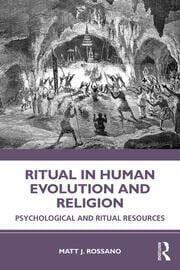The small point
The small point i need to make, prefacing this rewheeling invention post, is that the dichotomy describing a division of life into/between profane and sacred is not required. And that, because it is not necessary it is not then, most likely, even useful, at least in a positive way.
This does not mean it must be discarded so much as we must inquire into why we want/need/desire/insist it be made. And then we should discard it.
To restate the small point: this division of the sacred-holy versus the profane-mundane is not necessary at any level.
It is important to say this because it allows one to realise that the secular is the base line, and the religious is an imposition.
This small point is a meeting of minds, and not their sundering.
The joys of re-inventing the wheel
I would like to report this week I read a book in which I realised that I had in fact been re-inventing the wheel. I was glad, not sad.
This is good news as it means I am not alone-in-the-woods crazy.
The bad news is that often the phrase is used to indicate that not only has it been invented before but, it was done better.
The book is Ritual in Human Evolution and Religion: Psychological and Ritual Resources by evolutionary psychologist Matthew J. Rossano (New York: Routledge, Taylor & Francis Group, 2021. ISBN 9781003014393 ).
The key analogy with my oeuvre on why we should is the contrast Rossano uses between imagistic and doctrinal ritual (when exploring one dimension of this social behaviour).
Ritual is first defined as a way for us each and all, to manage resources; to manage psychological states.
Imagistic ritual provide the context for living a life among others and are for getting through primal events, and so are prior to doctrinal rituals:
Imagistic rituals provide support to life events (death, birth, marriage).
Doctrinal rituals seek to frame, or give context provided by imagistic ritual.
Doctrinal rituals have less impact, are less special, and thus need to be done more often, like weekly (mass) or daily (prayers) in order to have their effect.) (Here religion finds a niche to exploit).
This is analogous to my use where I contrast worlding with world-building.
to world — to live the extended phenotype, an umwelt among/with/agin others doing the same (imagistic rituals attend to this).
to world-build — to re-intensify worlding and double-down on its power to should via structures/religions/duties and other such outcomes (ideological/doctrinal).
If this is worse then it is worse, however, I have broaden the notice Rossano uses. From ritual as an element of religion, where as my term worlding broadens the notice into the blur/frame/level of living in the world.
And, potentially, it gives us the space to wonder about “what if” we had never built religion, let alone world-built divisions such as holy and mundane. (Religion’s claim on morality is its worse sin, even worse than its ongoing idolatry of itself.) Religion is often bad worldbuilding.
For my earlier uses of world/worldbuilding, which were written when I was unclear/unaware of this analogy that I see now, see:
For the complication of living in a body worlding in the world see:
Doctrine of the small point
Religion is only as old as our cities, and then it danced between imagistic and doctrinal for quite some time before empires chivvied it along into mostly doctrine in support of the state/city/empire of cities. Perhaps only in order to order obedience in the name of godliness, for example.
In fact I would argue I have de-mythologised ritual by removing religion entirely from the frame by avoiding the word ritual as it segues into rites and so into religion, as my terminology (to world) more easily includes meals by way of ritual feasting, rather than meals only being the profane version of the holy mass. As if the doctrinal mass were prior, primal, had priority/prestige, whereas to merely live the day was of no regard. Any dog can live. Any dog can answer the bell.
However… —the secular precedes the sacred, routines are prior to any reflection on them as rituals, despite what mythologies claim otherwise when going-doctrinal. Holiness is an afterthought, a doctrinal wouldn’t-it-be-nice if we are chosen to hang out with the cool heroes we tell stories about as straightedge models of virtus.
I am being doctrinal here when criticising doctrine. Criticism is always doctrinal,and has definitely come after any insight. I am doubling down on doctrinal stupidities where we pretend we do not know they are such in our hearts.
To perform social niceties is to make rituals in which we world each day and get along. To say you are doing it wrong is doctrinal, it world-builds, and often badly.
Now then… —how to do it well.





